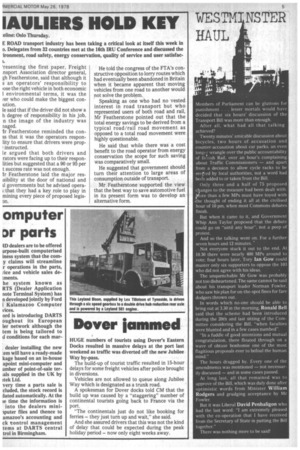IMPLIERS HOLD KEY
Page 7

If you've noticed an error in this article please click here to report it so we can fix it.
dine: Oslo Thursday.
E ROAD transport industry has been taking a critical look at itself this week in o. Delegates from 32 countries met at the 16th IRU Conference and discussed the ironment, road safety, energy conservation, quality of service and user satisfaci.
'resenting the first paper, Freight nsport Association director general, gh Featherstone, said that although it s an operators' responsibility to ose the right vehicle in both economic I environmental terms, it was the rer who could make the biggest conution.
Fe said that if the driver did not show a h degree of responsibility in his job, n the image of the industry was riaged.
1r Featherstone reminded the conss that it was the operators responlity to ensure that drivers were prop, instructed.
Fe argued that both drivers and rators were facing up to their responlities but suggested that a 90 or 95 per t success rate was not enough.
1r Featherstone laid the major res.sibility at the door of national and 11 governments but he advised opera; that they had a key role to play in mining every piece of proposed legisDn. He told the congress of the FTA's constructive opposition to lorry routes which had eventually been abandoned in Britain when it became apparent that moving vehicles from one road to another would not solve the problem.
Speaking as one who had no vested interest in road transport but who represented users of both road and rail, Mr Featherstone pointed out that the total energy savings to be derived from a typical road/rail road movement as opposed to a total road movement were highly questionable.
He said that while there was a cost benefit to the road operator from energy conservation the scope for such saving was comparatively small.
He suggested that government should turn their attention to large areas of consumption outside of transport.
Mr Featherstone supported the view that the best way to save automotive fuel in its present form was to develop an alternative form.
















































































































































































































